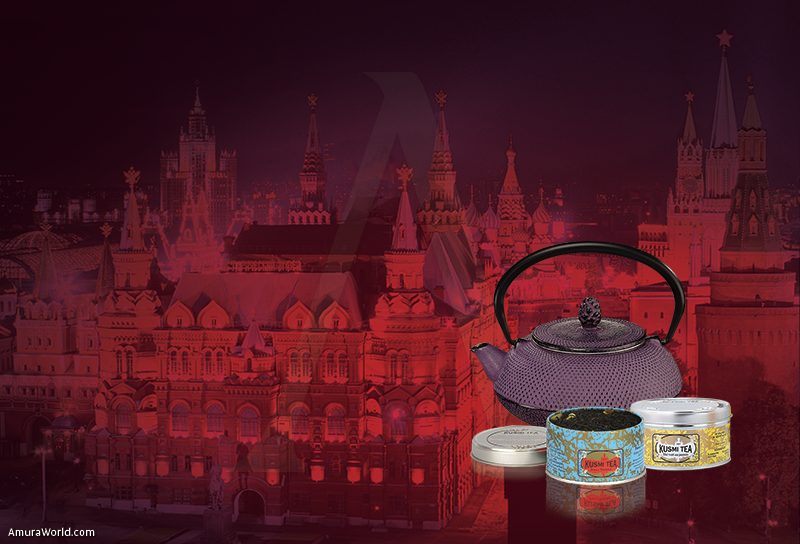For a fussy pallet
Kusmi Tea opens its doors to receive the most select group of tea lovers, owning a wide range of the most private repertoire of flavors and aromatic textures for the strictest pallets. Its blends leave a statement as imposing as its story, which transports us to the Saint Petersburg of 1867, where a small children of a peasant family tried his luck in the big city, landing his first job as a delivery boy.The owner soon realized the capacities of young Pavel Michailovitch Kousmichoff, and without thinking it twice initiated him in the artistry of blending this millenary beverage. By 1901 Pavel was the owner of 11 tea houses, converting his three small companies into one of the three largest enterprises in Russia.
In 1920 the whole family established in Pars, which at the moment was the capital of tea trade, creating 51 tea stores in his home town, making way for various symbolic blends of this house, which still conserve its origins up to date.
Pavel leaves imprinted his dream in the teas, numbering them in chronological order in a true peasant style, as the case of: the Grand Yunnan no. 21, the Polish Blend no. 18 and Russian morning no. 24, in conjunction with these infusions we find the English Breakfast and Darjaleeng no. 37.
With these already traditional creations of the Kusmi house, its founder also made fruit infusions using flowers and spices. Becoming so famous that during the Russian New Years eve each of his costumers was given cups of Prince Vladimir, an enjoyable mix of citric fruits, vanilla and spices. He also created a special blend in 1888, in commemoration of the 900th anniversary of the Russian country. The original recipe is still used today in order to achieve one of the most special, characteristic and popular blends of Kusmi Teas.
Text: La Europea ± Photo: LA EUROPEA

